Board index ‹ Theme Park Discussions ‹ Theme Park News & Construction! ‹ Wanda Parks Thread
That's like finding a Waffle House with no white trash in it.
That's like finding a Waffle House with no white trash in it.
That's like finding a Waffle House with no white trash in it.
That's like finding a Waffle House with no white trash in it.
That's like finding a Waffle House with no white trash in it.
That's like finding a Waffle House with no white trash in it.
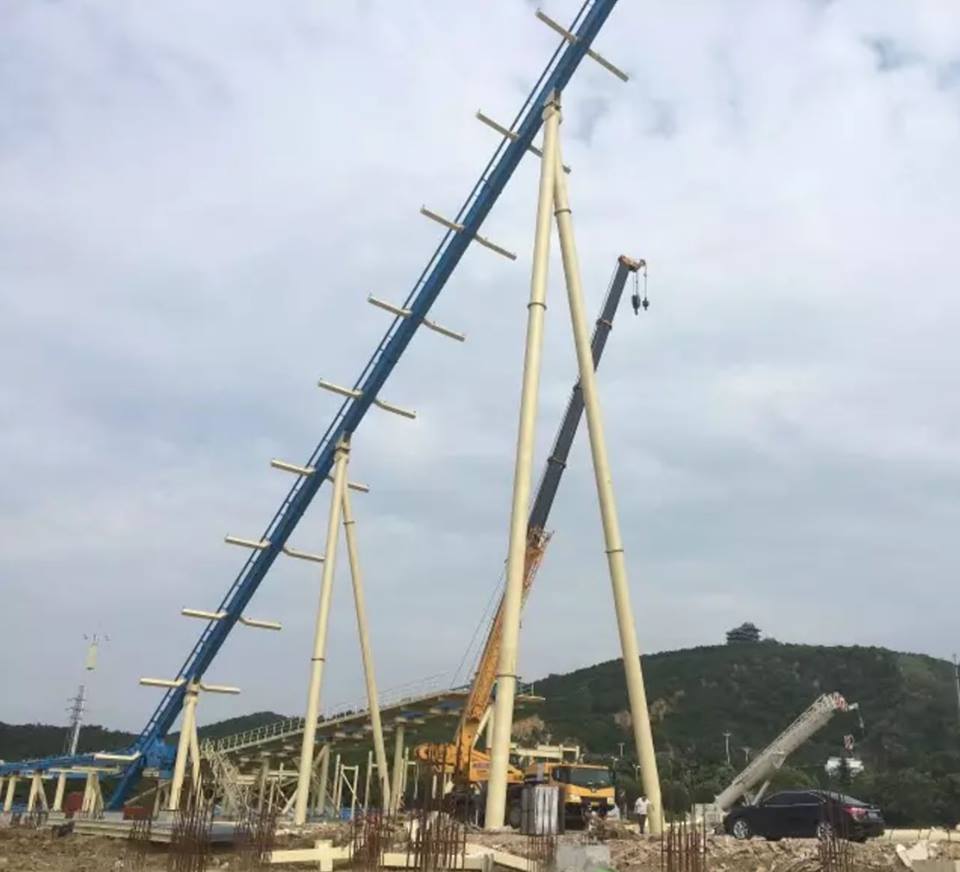
That's like finding a Waffle House with no white trash in it.
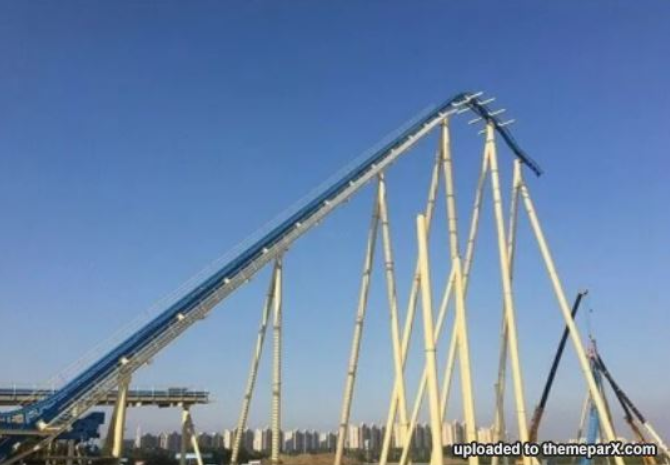
That's like finding a Waffle House with no white trash in it.
That's like finding a Waffle House with no white trash in it.
POV of their water coaster. Hopefully he posts a Harpy POV since we don't have one yet
'Bout time, amirite?
That's like finding a Waffle House with no white trash in it.
Wanda Parks Thread
Like we have to mention the "Ferrari World's SFX Coaster" construction progress, too! 
-- I was happy to be with NL1. --
Personal coaster count as of 3/2025 -- 222
"500" perhaps by the end of this year.
I will be a Thai citizen if possible in a few years.
Personal coaster count as of 3/2025 -- 222
"500" perhaps by the end of this year.
I will be a Thai citizen if possible in a few years.
The indoor park is now open!
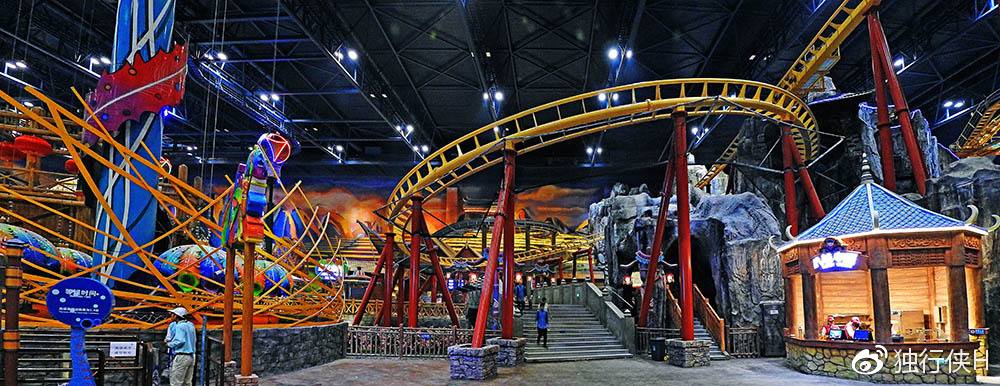
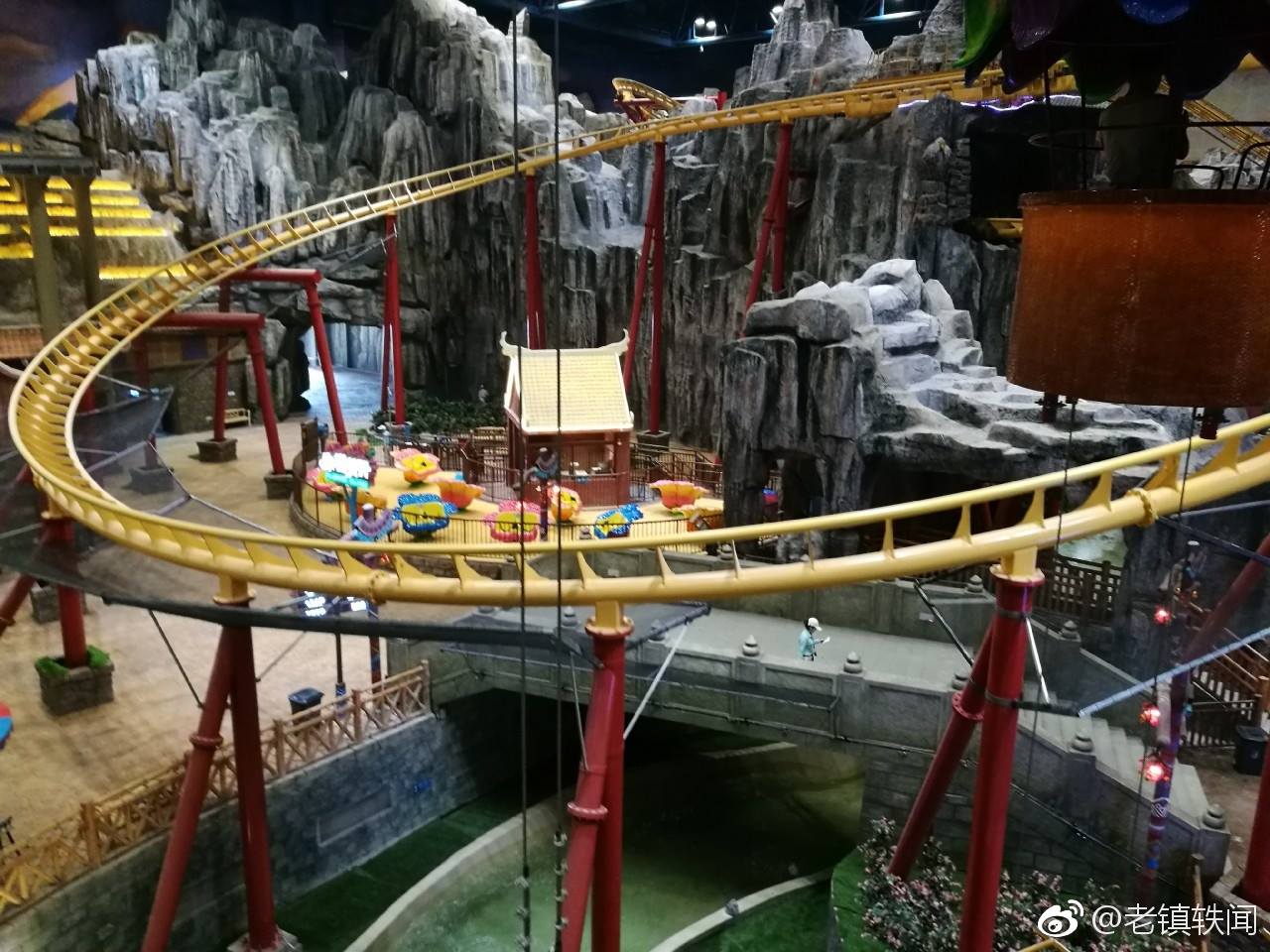
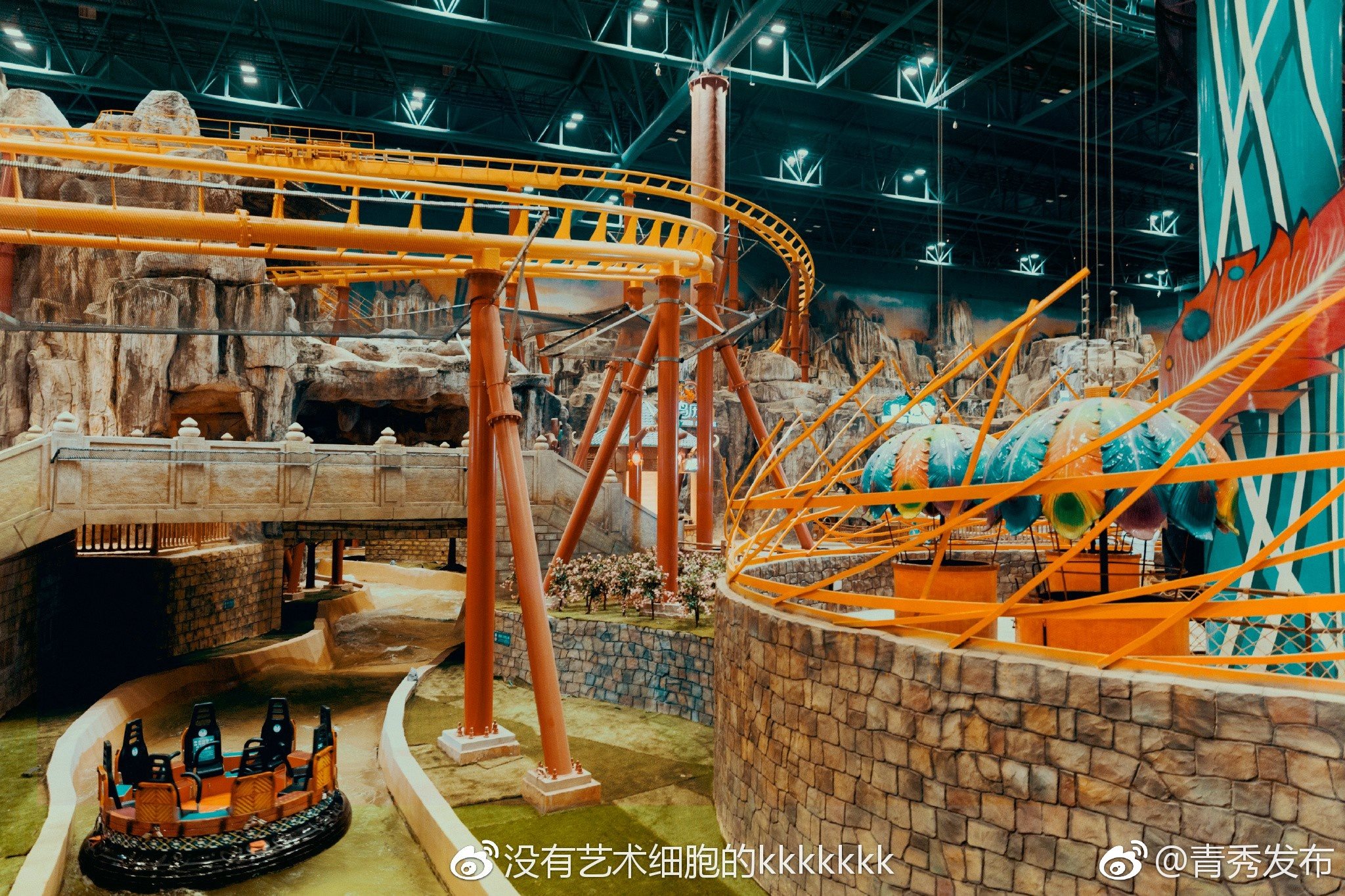
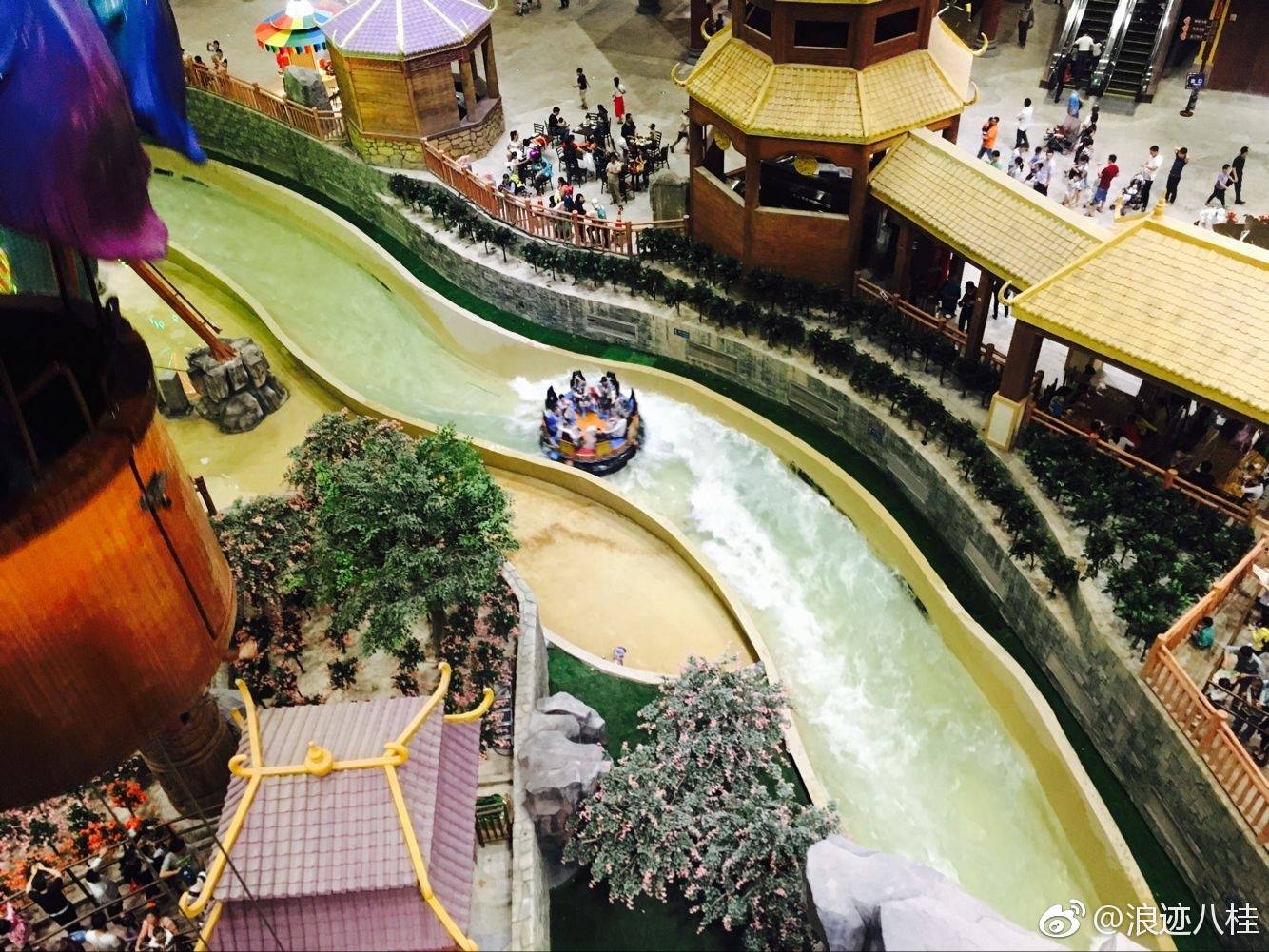




Coasterkidmwm wrote:
gouldy wrote:
Just don't employ stupid people and you're golden.
That's like finding a Waffle House with no white trash in it.
I'm a bit disappointed that the ceiling is normal while the rest of the theming looks really nice. But maybe the ceiling doesn't attract that much attention in real life.
I'm curious as to how Galaxyland or WEM will evaluate this indoor park. 
-- I was happy to be with NL1. --
Personal coaster count as of 3/2025 -- 222
"500" perhaps by the end of this year.
I will be a Thai citizen if possible in a few years.
Personal coaster count as of 3/2025 -- 222
"500" perhaps by the end of this year.
I will be a Thai citizen if possible in a few years.
Sorry for no pictures, but I have recently learned that the Golden Horse coaster at the indoor park in Nanning also has a drop track that is apparently pretty good with some airtime.
Coasterkidmwm wrote:
gouldy wrote:
Just don't employ stupid people and you're golden.
That's like finding a Waffle House with no white trash in it.
Wanda has sold its themepark business to Sunac China for 9.3 billion dollars. What this means for the current parks and future ones is still unknown.
Source
Dalian Wanda to sell theme park stakes to Sunac China
Nanchang Wanda City resort included in $9.3bn deal despite recent Disneyland boast
Chinese developer Dalian Wanda Group said it would sell a majority stake in many of its theme parks to rival developer Sunac China a year after its chairman boasted of driving Disneyland out of China.
Dalian Wanda announced on Monday that??Sunac would pay Rmb63.2bn ($9.3bn) for 76 Wanda hotels as well as taking a 91 per cent stake in 13 of Wanda???s tourism projects in China.
Wanda Hotel Development???s Hong Kong-traded shares rose as much as 155 per cent in early trade Monday on the news, and closed up 47 per cent at HK$0.85
Among the projects in the deal was the Nanchang Wanda City, which the company??opened last year and Wanda chairman Wang Jianlin talked up as a competitor to Disneyland Shanghai. Mr Wang had boasted that his chain of Wanda City theme parks would ???make Disney???s China venture unprofitable???.
The sale of the group???s leisure properties is part of Wanda???s ???asset-light??? policy, a plan launched two years ago to sell its real estate assets to investors with whom the company would share its rental income.
Several major Chinese developers, such as China Vanke and Soho China, have launched asset-light policies in the past two years to limit their exposure to turbulent Chinese property prices.??Under the model, developers finance and manage the projects on behalf of third-party investors but do not own the land or buildings.
Mr Wang said the deal would cut the debt of Wanda's recently delisted Dalian Wanda Commercial Properties, and that the group planned to clear all its debts during the next three years.
???For Wanda, this deal is about relieving the pressure of their debt,??? said Zhang Hongwei, chief analyst at property brokerage Tospur.
The conglomerate, which has three publicly listed subsidiaries but is itself privately owned, released half-year results on Thursday showing it was healthy, with 12 per cent year-on-year revenue growth.??
Analysts said debt levels at its listed subsidiaries, which do publish audited financial statements, were not unusually high. Wanda declined to comment on the debt of the parent.
The group???s turnround on its leisure assets was, however, curious given that it had been using the properties as part of an image rehabilitation blitz.
In June, China???s banking regulator confirmed it was examining banks??? exposure to Wanda and a handful of other major business groups ??? HNA, Fosun and Anbang ??? amid worries that their big offshore deals could strain the balance sheets of China???s domestic banks.
An analyst familiar with Wanda said the probe was ???a signal from the government to stop the run of overseas acquisitions??? rather than any genuine concern about unsustainable debts.
Wanda has been on a publicity push in recent weeks, pointing to its domestic culture and recreation investments.
Just last week, Mr Wang was handing an oversized key to a Rmb1.5bn ($220m) ethnically themed tourism village over to the local government of Danzhai County, home mostly to members of the Miao ethnic group.
A host of local officials were on hand at the opening to sing the praises of ???The Chairman???, as Mr Wang is known to those close to him. ???Wang Jianlin is responding to the call of the government, really helping the poor and helping the most poverty-struck areas, which is why he also chose Danzhai,??? said the county???s propaganda chief, who declined to give her name.??
Wanda said the opening of the village, along with a vocational school and poverty alleviation fund, were nothing out of the ordinary for the company, and unconnected to recent political setbacks and regulatory scrutiny in China.??
Mr Wang was also on hand to cut the ribbon on the world???s largest indoor ski resort at a Wanda City project in Harbin at the end of June, an event that in a previous era would have seen less fanfare.
The 80-hectare project was ???aided by a cultural tourism investment of Rmb20bn [$2.9bn],??? said Wanda at the time. Harbin is one of China???s more economically depressed areas.
While other developers are selling off assets, Sunac is aggressively buying them in property and leisure. The cash-rich developer sank $2.4bn into rescuing technology group LeEco, known for video-streaming and its US autonomous car ventures, earlier this year.
Sunac's chair said in a Caixin interview that the acquisition would be fully funded by the company's cash holdings of Rmb90bn, as of the end of June, which come from the group???s strong property sales.
???For Sunac, it???s about diversifying ??? although their sales have been high, nearly all of it is from residential properties, and they don???t have much in the way of commercial property such as hotels,??? said Mr Zhang of property brokerage Tospur.
Sunac has grown remarkably in the past year, with its property sales up 121 per cent in 2016, according to its annual report. But it has also embarked on a spree of debt-funded acquisitions within China, largely in real estate. The company more than doubled its land reserves in 2016.
Sunac has also acquired stakes in the film and television subsidiaries of LeEco after providing emergency funding to the cash-strapped tech company in January.
Yet analysts say that Sunac???s diversification into other sectors outside of real estate carries substantial risk.
Sunac shares dropped nearly 7 per cent on Friday, erasing nearly $1.2bn in market value after news broke that assets belonging to LeEco had been frozen due to an unpaid loan.
As a result of Sunac???s rapid expansion, Fitch Ratings and Moody???s have downgraded the company???s outlook from stable to negative.
Nanchang Wanda City resort included in $9.3bn deal despite recent Disneyland boast
Chinese developer Dalian Wanda Group said it would sell a majority stake in many of its theme parks to rival developer Sunac China a year after its chairman boasted of driving Disneyland out of China.
Dalian Wanda announced on Monday that??Sunac would pay Rmb63.2bn ($9.3bn) for 76 Wanda hotels as well as taking a 91 per cent stake in 13 of Wanda???s tourism projects in China.
Wanda Hotel Development???s Hong Kong-traded shares rose as much as 155 per cent in early trade Monday on the news, and closed up 47 per cent at HK$0.85
Among the projects in the deal was the Nanchang Wanda City, which the company??opened last year and Wanda chairman Wang Jianlin talked up as a competitor to Disneyland Shanghai. Mr Wang had boasted that his chain of Wanda City theme parks would ???make Disney???s China venture unprofitable???.
The sale of the group???s leisure properties is part of Wanda???s ???asset-light??? policy, a plan launched two years ago to sell its real estate assets to investors with whom the company would share its rental income.
Several major Chinese developers, such as China Vanke and Soho China, have launched asset-light policies in the past two years to limit their exposure to turbulent Chinese property prices.??Under the model, developers finance and manage the projects on behalf of third-party investors but do not own the land or buildings.
Mr Wang said the deal would cut the debt of Wanda's recently delisted Dalian Wanda Commercial Properties, and that the group planned to clear all its debts during the next three years.
???For Wanda, this deal is about relieving the pressure of their debt,??? said Zhang Hongwei, chief analyst at property brokerage Tospur.
The conglomerate, which has three publicly listed subsidiaries but is itself privately owned, released half-year results on Thursday showing it was healthy, with 12 per cent year-on-year revenue growth.??
Analysts said debt levels at its listed subsidiaries, which do publish audited financial statements, were not unusually high. Wanda declined to comment on the debt of the parent.
The group???s turnround on its leisure assets was, however, curious given that it had been using the properties as part of an image rehabilitation blitz.
In June, China???s banking regulator confirmed it was examining banks??? exposure to Wanda and a handful of other major business groups ??? HNA, Fosun and Anbang ??? amid worries that their big offshore deals could strain the balance sheets of China???s domestic banks.
An analyst familiar with Wanda said the probe was ???a signal from the government to stop the run of overseas acquisitions??? rather than any genuine concern about unsustainable debts.
Wanda has been on a publicity push in recent weeks, pointing to its domestic culture and recreation investments.
Just last week, Mr Wang was handing an oversized key to a Rmb1.5bn ($220m) ethnically themed tourism village over to the local government of Danzhai County, home mostly to members of the Miao ethnic group.
A host of local officials were on hand at the opening to sing the praises of ???The Chairman???, as Mr Wang is known to those close to him. ???Wang Jianlin is responding to the call of the government, really helping the poor and helping the most poverty-struck areas, which is why he also chose Danzhai,??? said the county???s propaganda chief, who declined to give her name.??
Wanda said the opening of the village, along with a vocational school and poverty alleviation fund, were nothing out of the ordinary for the company, and unconnected to recent political setbacks and regulatory scrutiny in China.??
Mr Wang was also on hand to cut the ribbon on the world???s largest indoor ski resort at a Wanda City project in Harbin at the end of June, an event that in a previous era would have seen less fanfare.
The 80-hectare project was ???aided by a cultural tourism investment of Rmb20bn [$2.9bn],??? said Wanda at the time. Harbin is one of China???s more economically depressed areas.
While other developers are selling off assets, Sunac is aggressively buying them in property and leisure. The cash-rich developer sank $2.4bn into rescuing technology group LeEco, known for video-streaming and its US autonomous car ventures, earlier this year.
Sunac's chair said in a Caixin interview that the acquisition would be fully funded by the company's cash holdings of Rmb90bn, as of the end of June, which come from the group???s strong property sales.
???For Sunac, it???s about diversifying ??? although their sales have been high, nearly all of it is from residential properties, and they don???t have much in the way of commercial property such as hotels,??? said Mr Zhang of property brokerage Tospur.
Sunac has grown remarkably in the past year, with its property sales up 121 per cent in 2016, according to its annual report. But it has also embarked on a spree of debt-funded acquisitions within China, largely in real estate. The company more than doubled its land reserves in 2016.
Sunac has also acquired stakes in the film and television subsidiaries of LeEco after providing emergency funding to the cash-strapped tech company in January.
Yet analysts say that Sunac???s diversification into other sectors outside of real estate carries substantial risk.
Sunac shares dropped nearly 7 per cent on Friday, erasing nearly $1.2bn in market value after news broke that assets belonging to LeEco had been frozen due to an unpaid loan.
As a result of Sunac???s rapid expansion, Fitch Ratings and Moody???s have downgraded the company???s outlook from stable to negative.
Source
Coasterkidmwm wrote:
gouldy wrote:
Just don't employ stupid people and you're golden.
That's like finding a Waffle House with no white trash in it.
Well despite the sale to Sunac China, the Wanda City park in Wuxi has broken ground. This park will have a wing coaster with light blue track and brown supports.
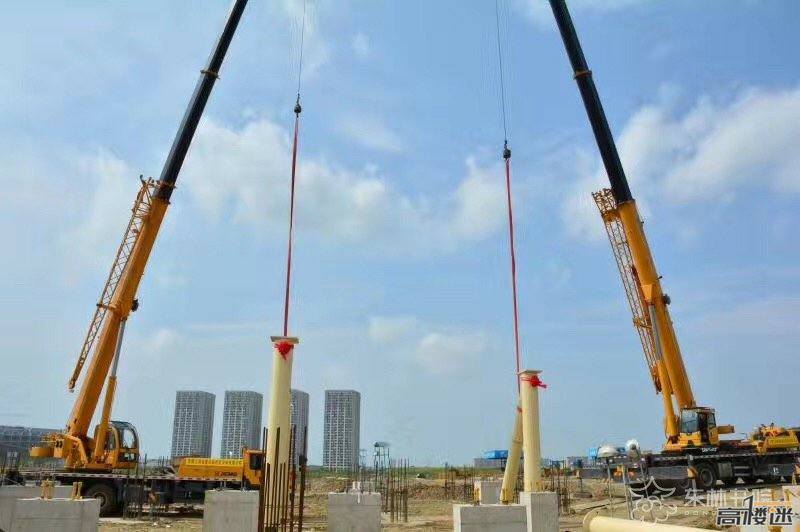
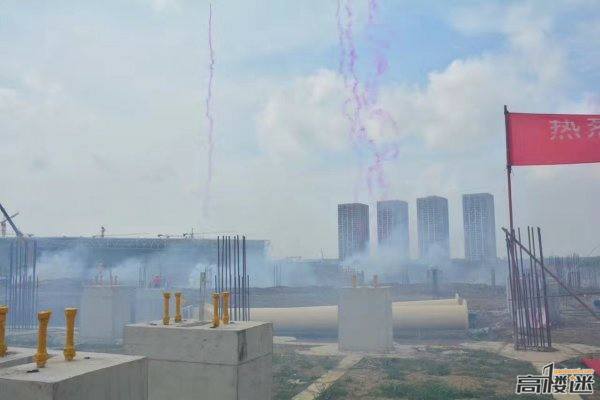
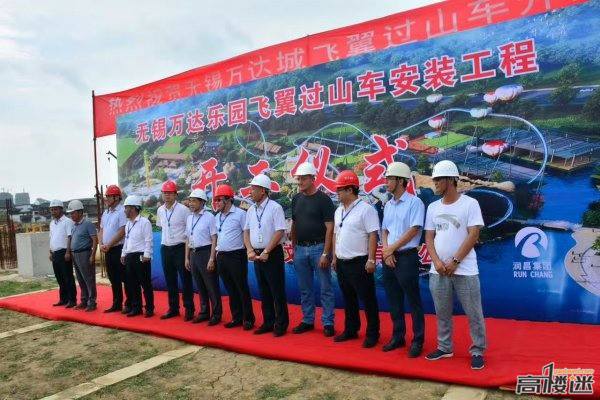
Here's the layout for it:



Here's the layout for it:
Coasterkidmwm wrote:
gouldy wrote:
Just don't employ stupid people and you're golden.
That's like finding a Waffle House with no white trash in it.
^ GateKeeper is as you can see at Cedar Point, so this might be named GateCrasher! xD Taking no offence to coasters built in China, though!
-- I was happy to be with NL1. --
Personal coaster count as of 3/2025 -- 222
"500" perhaps by the end of this year.
I will be a Thai citizen if possible in a few years.
Personal coaster count as of 3/2025 -- 222
"500" perhaps by the end of this year.
I will be a Thai citizen if possible in a few years.
So we have this new concept image of the Intamin impulse heading to Wuxi in 2018. It seems to be a Wicked Twister clone but the details are still unknown. Theming looks excellent though.
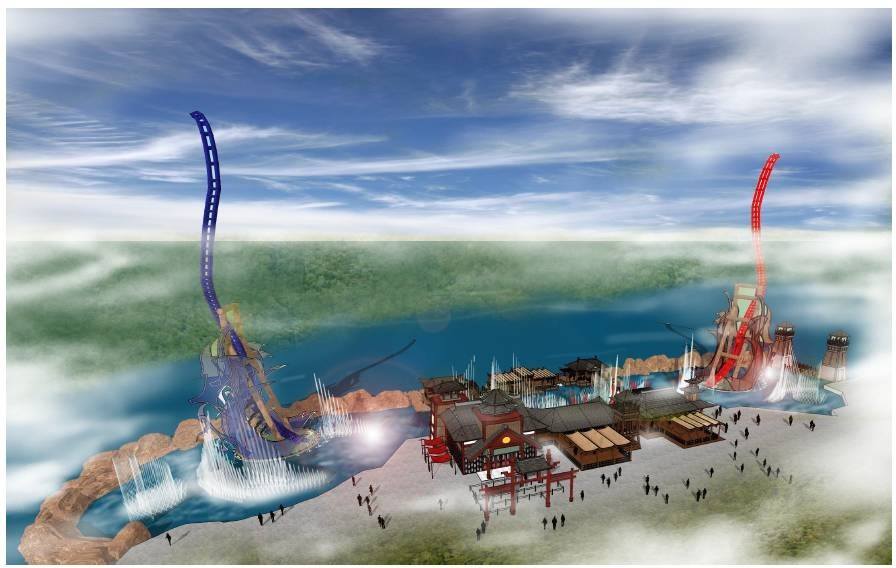

Coasterkidmwm wrote:
gouldy wrote:
Just don't employ stupid people and you're golden.
That's like finding a Waffle House with no white trash in it.
A wicked twister, partially submerged below water? That looks quite awesome and fun at the same time. I really hope they are going to nail this concept art! I can't wait for the noise of the launch coming from the tunnel. :3
Coastercount: 1410 (I've seen the world and it's horrid contraptions... @.@)
- Wood: 142
- Steel: 1268
- Wood: 142
- Steel: 1268
^^ Twists that'll look like legendary dragons! Wow impressive! 
-- I was happy to be with NL1. --
Personal coaster count as of 3/2025 -- 222
"500" perhaps by the end of this year.
I will be a Thai citizen if possible in a few years.
Personal coaster count as of 3/2025 -- 222
"500" perhaps by the end of this year.
I will be a Thai citizen if possible in a few years.
More progress on the wing coaster. It has quite a long brake run.
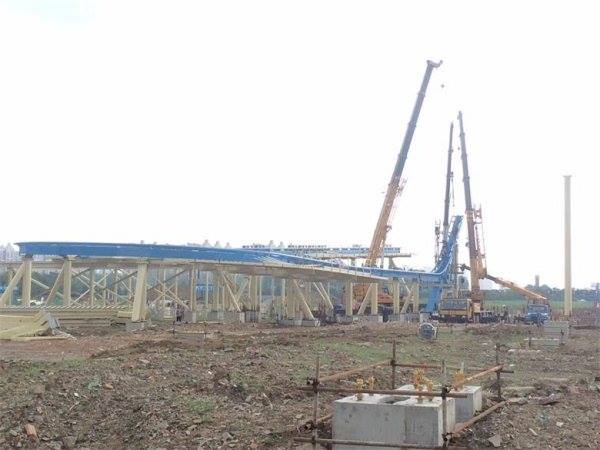
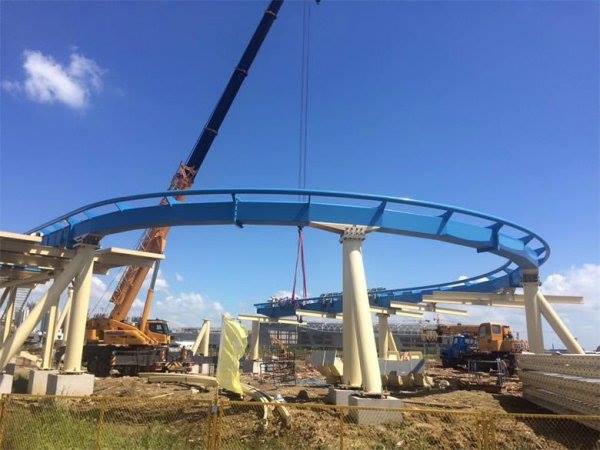
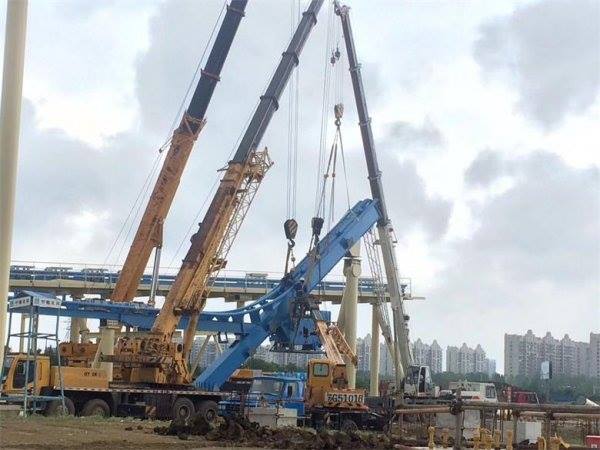
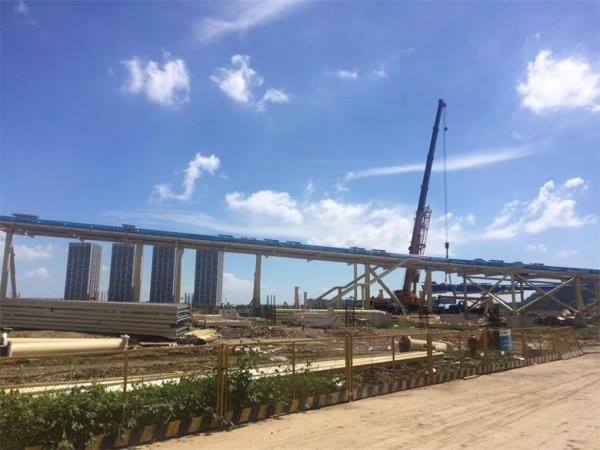




Coasterkidmwm wrote:
gouldy wrote:
Just don't employ stupid people and you're golden.
That's like finding a Waffle House with no white trash in it.
^ Does that long brake part mean we can hope for the true high speed Wingrider? 
-- I was happy to be with NL1. --
Personal coaster count as of 3/2025 -- 222
"500" perhaps by the end of this year.
I will be a Thai citizen if possible in a few years.
Personal coaster count as of 3/2025 -- 222
"500" perhaps by the end of this year.
I will be a Thai citizen if possible in a few years.

Coasterkidmwm wrote:
gouldy wrote:
Just don't employ stupid people and you're golden.
That's like finding a Waffle House with no white trash in it.
^ They both look so looooooooong! Thanks for the images! 
-- I was happy to be with NL1. --
Personal coaster count as of 3/2025 -- 222
"500" perhaps by the end of this year.
I will be a Thai citizen if possible in a few years.
Personal coaster count as of 3/2025 -- 222
"500" perhaps by the end of this year.
I will be a Thai citizen if possible in a few years.
That wing coaster is enormous
"Careful man, there's a beverage here!"

Coasterkidmwm wrote:
gouldy wrote:
Just don't employ stupid people and you're golden.
That's like finding a Waffle House with no white trash in it.
Damn that thing looks massive
"Careful man, there's a beverage here!"
POV of the Zamperla Motocoaster at the Xishuangbanna park
Coasterkidmwm wrote:
gouldy wrote:
Just don't employ stupid people and you're golden.
That's like finding a Waffle House with no white trash in it.
Looks alright.
[19:34:14] RideWarriorNation: jim
[19:34:27] RideWarriorNation: can you pls change sig
[19:35:22] Jcoasters: ok
[19:35:39] RideWarriorNation: ty
[19:34:27] RideWarriorNation: can you pls change sig
[19:35:22] Jcoasters: ok
[19:35:39] RideWarriorNation: ty
POV of their water coaster. Hopefully he posts a Harpy POV since we don't have one yet
Ok but how desperate you have to be to voluntarily fly from another country to go to Thorpe?
Must they clone the colors with the ride as well lol
"Careful man, there's a beverage here!"
'Bout time, amirite?
Ok but how desperate you have to be to voluntarily fly from another country to go to Thorpe?
The intamin watercoaster looks good. I like the helix! Looks quite forceful!
Coastercount: 1410 (I've seen the world and it's horrid contraptions... @.@)
- Wood: 142
- Steel: 1268
- Wood: 142
- Steel: 1268
Water doesn't look very clean tho 
Coasterkidmwm wrote:
gouldy wrote:
Just don't employ stupid people and you're golden.
That's like finding a Waffle House with no white trash in it.
Return to Theme Park News & Construction!
-
- Related topics
- Replies
- Views
- Last post
-
- GCI wooden coaster at Wanda (Nanchang) Culture Tourism City
by cool5 » November 19th, 2013, 1:23 pm - 10 Replies
- 3426 Views
- Last post by AJClarke0912

November 20th, 2013, 12:52 pm
- GCI wooden coaster at Wanda (Nanchang) Culture Tourism City
-
- Theme Park Speculation Thread!
by Dev-Con » July 10th, 2015, 9:48 am - 18 Replies
- 4736 Views
- Last post by Coaster Hero

July 15th, 2015, 3:28 am
- Theme Park Speculation Thread!
-
- Fantawild Parks in China
1, 2, 3, 4by Paradox » May 10th, 2015, 7:45 pm - 88 Replies
- 18289 Views
- Last post by Traintastic26

May 11th, 2019, 1:20 am
- Fantawild Parks in China
-
- Disney Parks General
by Dev-Con » December 12th, 2015, 10:42 am - 1 Replies
- 1368 Views
- Last post by XLR8R

December 13th, 2015, 11:54 pm
- Disney Parks General




